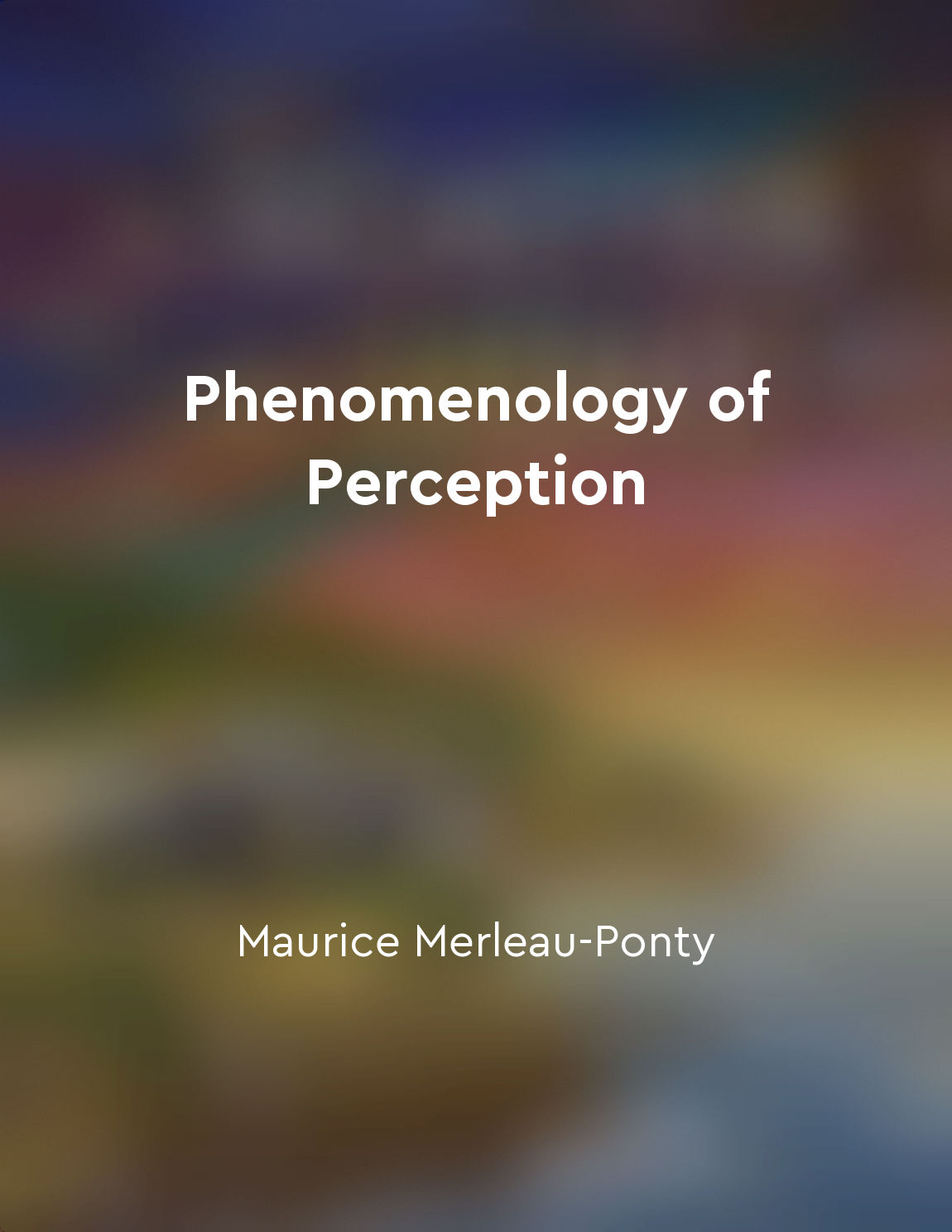The brain's ability to create illusions can teach us about its fundamental nature from "summary" of Phantoms in the Brain by V. S. Ramachandran
The brain is a remarkable organ that can create illusions, showing us how it works at its core. These illusions are not just tricks of the mind; they reveal deep insights into the brain's fundamental nature. By studying how the brain can be deceived, we can understand its inner workings and complexities. Illusions can occur in various forms, from visual to sensory distortions. For example, optical illusions can play tricks on our eyes, making us see things that are not really there. These illusions demonstrate how our brains interpret and process visual information, highlighting the brain's incredible ability to construct our reality. Moreover, illusions can also manifest in the form of phantom limbs, where an amputee still feels sensations in a missing limb. This phenomenon showcases the brain's plasticity and its capacity to adapt to changes in the body. By examining how the brain generates these phantom sensations, we gain insights into its intricate mechanisms and how it constructs our bodily perceptions. Furthermore, illusions can reveal the brain's potential for creativity and innovation. When the brain creates illusions, it showcases its ability to think outside the box and generate new perspectives. This creativity is essential for problem-solving and adaptation, demonstrating the brain's adaptability and resilience in the face of challenges.- The brain's ability to create illusions is not just a whimsical feature; it is a window into its fundamental nature. By studying these illusions, we can unravel the mysteries of the brain and gain a deeper understanding of how it functions. Illusions are not just tricks of the mind; they are keys to unlocking the secrets of the brain's inner workings.
Similar Posts

The body is a continuous source of meaning
Merleau-Ponty asserts that the body is not merely a physical entity but a dynamic source of significance that continuously shap...
Meditation and mindfulness practices can help rewire the brain
Dr. Joe Dispenza explains that our thoughts and emotions have a direct impact on the physical structure of our brain. When we e...
Nanotechnology will change the way we live
Nanotechnology is a concept that promises to revolutionize the way we live. By manipulating materials on the scale of atoms and...
Empathy is the key to understanding others
Empathy is crucial in our interactions with others. It allows us to truly understand their perspective, feelings, and experienc...
Reality blurs with delusions
The line between what is real and what is imagined can sometimes become frighteningly thin, as if reality itself were a fragile...

Being open to feedback can challenge your assumptions
When you are open to feedback, you are inviting others to provide you with their perspectives on a particular matter. This can ...
Our brains are wired to seek out patterns
Our brains are wired to seek out patterns. This fundamental ability helps us make sense of the world around us. From the moment...
Visual memory can be strong despite impairment
In describing visual agnosias, I have often pointed out that the ability to recognize familiar faces, or objects, or scenes may...
Memory is not a mental mechanism
The concept that memory is not a mental mechanism is crucial to understanding the nature of the mind. When we talk about memory...
Collaborating with diverse perspectives can lead to better outcomes
When people collaborate, they bring their own unique perspectives and expertise to the table. Each individual has a different w...


